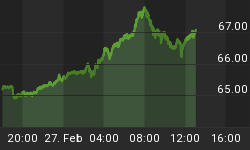Cornell, Stanford, MIT, Yale and more are now offering up courses on cryptocurrency and blockchain technology, suggesting that the latest generation of college attendees aims to be more than just dabblers in the space.
Professors teaching the courses cite blockchain technology’s potential to transform the future of any number of industries, but especially finance and economics.
Kevin Werbach of the University of Pennsylvania explains how blockchain courses could fit into a student’s curriculum, “In order to understand blockchain well, you actually need to learn a bunch of subjects that we already teach in the university – things like economics and finance and law and distributed systems in engineering.”
With interest growing, some high-profile guests are even contributing to the cause.
Kathryn Haun, a partner at Andreessen Horowitz and Stanford alum, teaches a course called “Cryptocurrency” at alma mater, while Balaji Srinivasan, former CEO of Earn.com and current CTO at Coinbase, offers a course on development.
On the other side of the U.S., Tadge Dryja co-author of the Lightning Network whitepaper and former CTO of Lightning Labs, teaches “Cryptocurrency Engineering and Design” alongside Neha Narula the director of the Digital Currency Initiative at MIT.
And interest in cryptocurrencies and blockchain tech is showing no signs of slowing among new students. Related: Stablecoins: The Next Trend In Cryptocurrencies
Emin Gün Sirer, Associate Professor of Computer Science at Cornell, explained, “Usually, when you have five to a dozen students in such a class, you’re teaching a popular class. If was interesting to see that level of interest… “
Universities investing in the crypto space
David Swensen, Yale’s chief investment officer of the university’s $29 billion endowment fund, is betting on cryptocurrency and blockchain with new investments in Andreessen Horowitz’s $300 million crypto fund and Coinbase co-founder Fred Ehrsam’s Paradigm project.
Though it’s safe to say that crypto only accounts for a small part of Swensen’s investments, the head nod from Yale’s “in-house” Warren Buffet has clearly had a ripple effect, sparking other universities to follow Yale’s lead.
In addition to Yale. MIT, Harvard, Dartmouth, and the University of North Carolina have all dumped a bit of cash into crypto investment funds.
The Information journalist, Jon Victor, noted, “A move by endowments into funds that will directly bet on cryptocurrencies signals a major shift in investor sentiment toward the asset class, in the same way that institutions over the past decade became more willing to invest in private tech companies. Backing from such closely watched institutions could help validate cryptocurrencies, which are still considered too risky by many institutional investors.”
Conclusion
With some of the top universities in the United States diving into the crypto-sphere, it’s likely that others will follow.
It’s clear that millennials are leading the crypto-revolution, and with positive sentiment growing louder, we will definitely be seeing more classes, and more high-profile investments – in the same way we saw universities dive into tech stocks years ago.
By Michael Kern via Crypto Insider
More Top Reads From Safehaven.com:
















